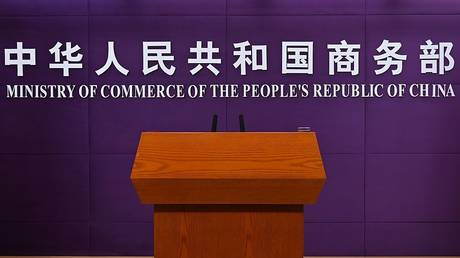
Twitter has removed thousands of accounts it claims were tied to Chinese and Russian information campaigns involved in “manipulation” efforts – but its decision to team up with the Stanford Internet Observatory raises a red flag.
In a blog post on Friday, Twitter said it was disclosing 32,242 accounts to its archive of “state-linked information operations,” including three distinct operations from China, Russia and Turkey.
“Every account and piece of content associated with these operations has been permanently removed from the service,” it said, claiming that its goal was to get rid of “bad faith actors.”
The social media giant said it discovered a “core network” of 23,750 accounts relating to China, with 150,000 “amplifier” accounts boosting their content. All were engaging in “manipulative and coordinated activities,” it said.
It also shut down 1,152 accounts associated with Current Policy, which it described as a website “engaging in state-backed political propaganda within Russia.” Twitter said the network of accounts was posting in a “coordinated manner for political ends.”
One of Twitter’s leading “research partners” in this effort is named as the Stanford Internet Observatory (SIO), which describes itself as studying “the abuse of the internet” with a particular focus on social media.
Indeed, one of SIO’s researchers, Renee DiResta, should be well aware of how to spot online manipulation campaigns, given that she previously worked for cybersecurity firm New Knowledge – an outfit that was busted by the New York Times for reportedly running a disinformation campaign targeting American voters in 2017.
The article then stated that the firm “orchestrated an elaborate ‘false flag’ operation” with an army of fake Russian bots, which was designed to make voters believe that Republican candidate Roy Moore was backed by Moscow when he was running for the US senate. This could easily be described as the kind of “abuse of the internet” SIO claims it is against.
The stunt even got the firm’s CEO Jonathan Morgan kicked off Facebook for “coordinated inauthentic behavior” – an event described by the Times as a “stinging embarrassment” for the researcher given his reputation as a “leading voice” against disinformation campaigns online.
Adding further irony to Twitter’s choice of research partner is the fact that SIO Director Alex Stamos “serves on the advisory board to NATO’s Collective Cybersecurity Center of Excellence.”
NATO is no stranger to social media manipulation either, with its Public Diplomacy Division having reportedly been a funder of a British ‘Integrity Initiative’ psy-op exposed in the past, which had been posing as a disinformation-busting charity.
Twitter said this week it was trialling a “read before you retweet” pop-up message in order to promote “informed discussion,” but it looks as though the platform itself is missing (or ignoring) some crucial information about its own research partners.
Like this story? Share it with a friend!




